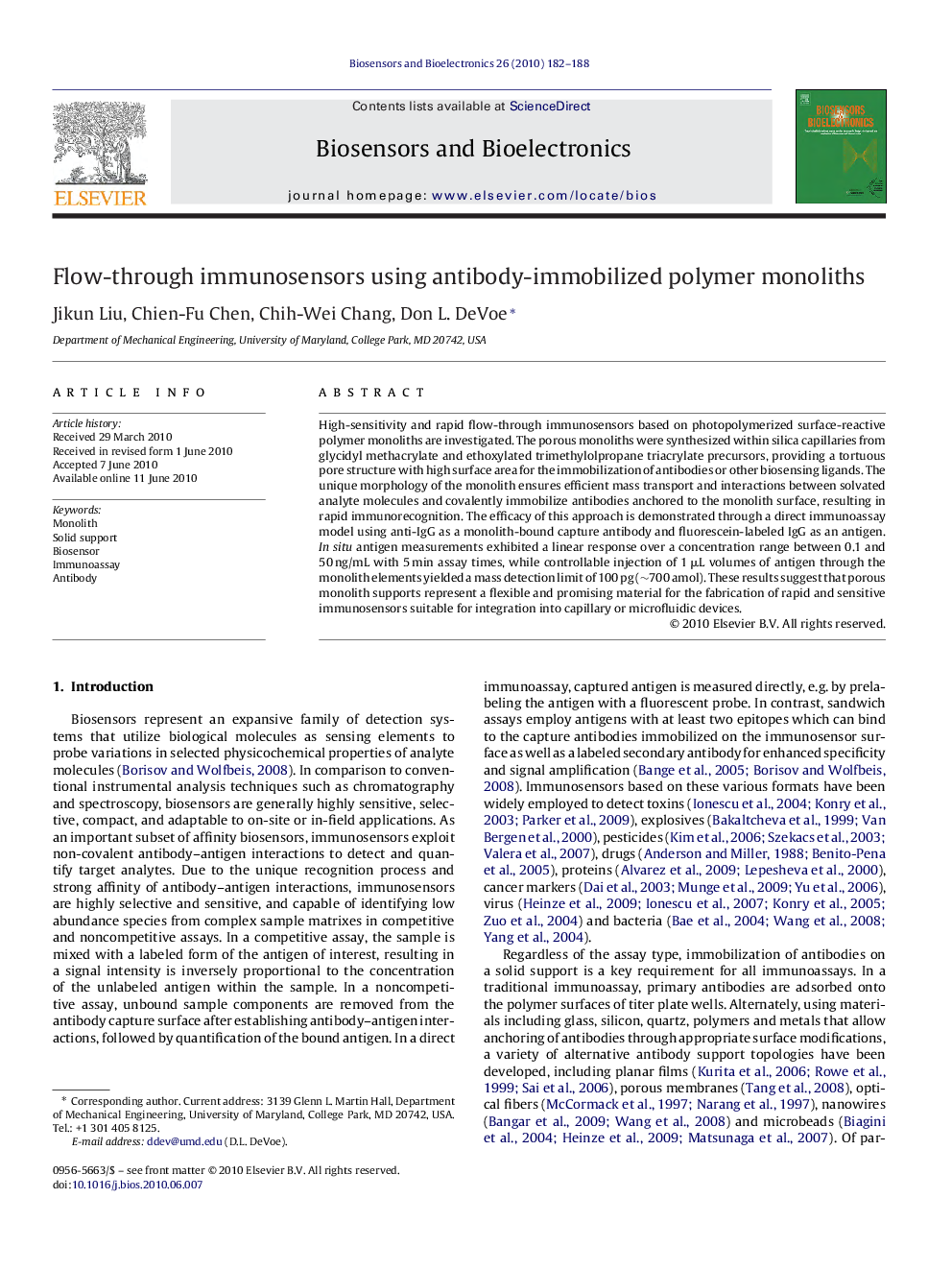| Article ID | Journal | Published Year | Pages | File Type |
|---|---|---|---|---|
| 867952 | Biosensors and Bioelectronics | 2010 | 7 Pages |
High-sensitivity and rapid flow-through immunosensors based on photopolymerized surface-reactive polymer monoliths are investigated. The porous monoliths were synthesized within silica capillaries from glycidyl methacrylate and ethoxylated trimethylolpropane triacrylate precursors, providing a tortuous pore structure with high surface area for the immobilization of antibodies or other biosensing ligands. The unique morphology of the monolith ensures efficient mass transport and interactions between solvated analyte molecules and covalently immobilize antibodies anchored to the monolith surface, resulting in rapid immunorecognition. The efficacy of this approach is demonstrated through a direct immunoassay model using anti-IgG as a monolith-bound capture antibody and fluorescein-labeled IgG as an antigen. In situ antigen measurements exhibited a linear response over a concentration range between 0.1 and 50 ng/mL with 5 min assay times, while controllable injection of 1 μL volumes of antigen through the monolith elements yielded a mass detection limit of 100 pg (∼700 amol). These results suggest that porous monolith supports represent a flexible and promising material for the fabrication of rapid and sensitive immunosensors suitable for integration into capillary or microfluidic devices.
